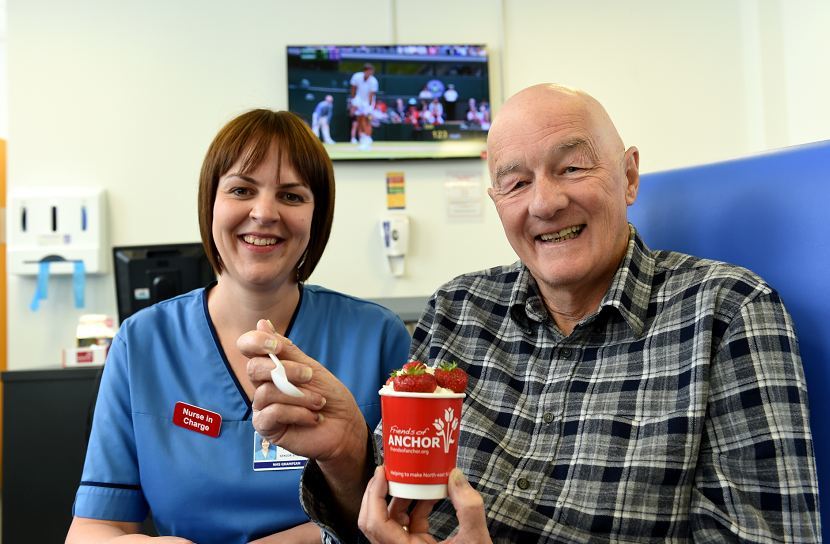As the fight for this year’s Wimbledon intensifies, all eyes are glued to TV screens across the country to watch who wins.
For patients receiving treatment in hospital, it is not always so easy to catch up on matches.
But for those receiving chemotherapy at Aberdeen Royal Infirmary (ARI), there is no longer any need for them to miss out.
Brand-new televisions have been installed at ARI’s chemotherapy ward thanks to funding from north-east cancer charity, Friends of ANCHOR.
Employees from Inverurie-based Booth Electrical Services and Aberdeen electricians G & A Barnie Group gifted their time at the weekend to get the sets up-and-running, just in time for the second week of Wimbledon.
The televisions have been installed in two treatment rooms and the waiting area for the chemotherapy day unit after patients flagged up to the charity what they thought was missing from their hospital visits.
“Following the chemotherapy ward’s move at the end of last year, we switched on a survey a number of months ago to hear from patients about their suggestions for the new department space,” said Sarah-Jane Hogg, PR & Fundraising Manager at Friends of ANCHOR.
“TVs were frequently requested and with the committee’s approval, we took the necessary steps to get them installed in ward 310.
“We worked very closely with NHSG Estates department to make this happen and we are incredibly grateful to them for activating the necessary protocol so quickly and efficiently to get the TVs installed in time for the final week of Wimbledon.”
Yesterday, as patients and staff were treated to strawberries and cream by the charity to watch Andy Murray face Vasek Pospisil in the quarter finals, senior staff nurse, Fiona Walker, said it was great way for them to take their minds off what they are going through.
“Having the addition of the TVs has given such a welcome distraction for what can be a long day in the hospital. Some patients can be here from 8.30 in the morning until 6pm at night,” she said.
“As a staff team, we’re delighted with the arrival of the TVs. Talking about the tennis or everyday things shown on the TV instigates conversations among the patients and offers a break away from the clinical setting.
“Watching on as patients and their loved ones chat with others in the room has been a boost to the staff aswell.”




